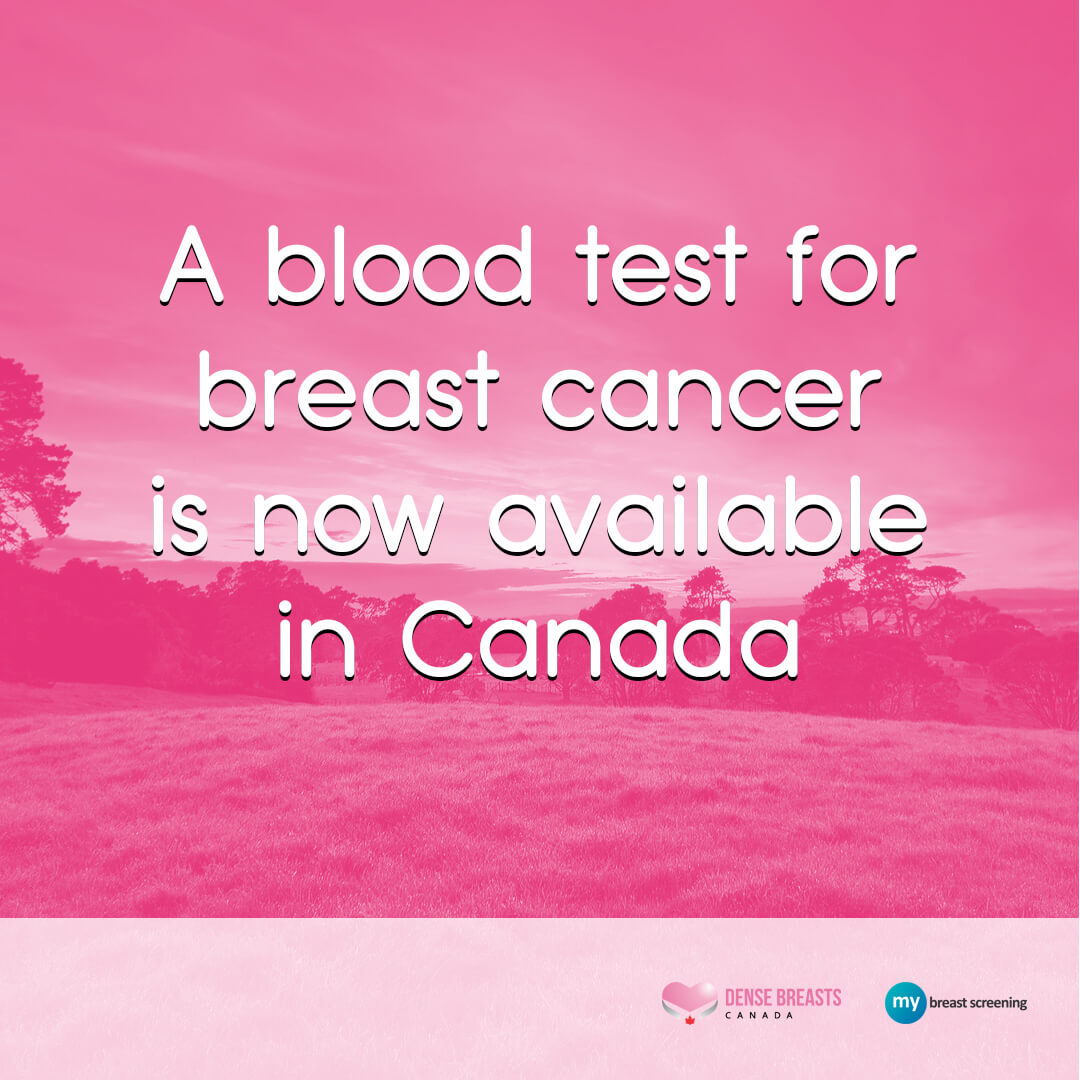A new blood test for breast cancer detection

We were curious about the new blood test available to women in Alberta and Ontario and coming across Canada and so we did some research. This research is not exhaustive and we found there are unanswered questions. The main one being, how accurate is the test? We would be thrilled if this blood test could help women who are not well served by current imaging or who are too young for imaging. Can it do that? Perhaps, it is too early to know since the test is still being studied while it has gone to market.
WHAT IS IT?
- Syantra DX is a blood test for breast cancer now available in Canada.
- While Syantra DX is still being studied, it has also been released commercially.
WHERE IS IT AVAILABLE?
- Currently, the test is available in one location in Calgary and one location in Ottawa. https://ottawadermcentre.com/syantra-dx/
- There are more locations to come in Ontario this winter and then plans are for a roll out across Canada, so this information about availability may be out of date soon.
HOW DOES IT WORK
- Syantra detects the presence of breast cancer by evaluating the expression of 12 novel genes through a custom qPCR process with proprietary software that includes machine learning-derived algorithms.
- If something is detected then there is follow up with imaging
WHAT DOES IT COST?
- Syantra recommends a cost of $499 but clinics offering the test are free to charge what they like and the Ottawa location is charging $799. Some private insurance plans may cover part (not confirmed).
WHAT DOES THE INCOMPLETE STUDY SHOW TO DATE?
- The principal investigators claim interim data from their study demonstrates the clinical utility of Syantra for use in early screening. Syantra states it provides a promising screening option to supplement current imaging approaches.
- Here is the link to the abstract supplied by Syantra and below is our summary. https://ssusa.s3.amazonaws.com/c/308494115/media/157961b8ffc2b1f285559908772326 1/3929~abstract_b.pdf
- To date, the study has looked at ~1100 women with a goal of studying 2100.
Who were participants? The study has looked at women under 50, women over 50, as well as women with dense breasts. - What were the results of the blood test in the study? Higher accuracy of the blood test was observed in the group under 50. Sensitivity for women over 50 is 77%, under 50 it is 92% and overall, it is 79%.
- The average size of tumour found for those with invasive breast cancer was 2.9 cm and 59 % of women were stage 1
- This data may change as more results come in from the study-this blog is based on the abstract
WHY DOES THIS MATTER
- Mammograms are the so-called gold standard for breast screening in Canada but the limitations are well documented.
- There are some populations that are at a disadvantage for early detection using mammography.
1.Younger women: Currently, there is no screening available for women under 40. The numbers of young women getting cancer are increasing, especially minority women. Cancer in young women are more aggressive so finding them early is important.
2.Women with dense breasts: mammogram accuracy is only about 40 percent in women with the highest category of dense breasts.
3.Women with lobular cancer: Lobular cancer is harder to detect and does not present as a lump usually. About 15% of breast cancer cases are lobular.
A reliable blood test could assist with the early detection of breast cancer for these populations perhaps? Will Syantra be that reliable blood test and a game changer or not?
WHO IS THE TEST RECOMMENDED FOR?
- Women between the ages of 30 and 70 who have no previous cancers and who have not had breast surgery or biopsy in the last 12 months. The reasons for the exclusion is Syantra has not been studied in these groups.
QUESTIONS WE HAVE?
- Is the test reliable? False positives? False negatives?
- Why has the test gone to market before the study has been completed?
- What if blood test shows cancer, but imaging does not and there are no symptoms
- Why is the size of tumour being found after the blood test still so high? Why are not more women found in stage 1?
MORE INFORMATION
https://www.syantra.com/for-healthcare-providers
https://www.syantra.com/for-patients
If you have questions, please visit Syantra.com
If you have the test, please let us know how it goes.
Disclaimer
Dense Breasts Canada has no connection to Syantra.
We do not receive any funding from imaging companies or technology companies. We
cannot guarantee the information on this page is error-free. For answers to healthrelated questions, please consult your healthcare provider.
